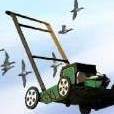Mooney down NJ
-
Members Online
- Mooney20J_Driver
- Healthpilot
- Andy95W
- Skyland
- redbaron1982
- Bartman
- joemoriss
- Jakes Simmons
- Marc_B
- Fly Boomer
- MikeOH
- Robm
- Pictreed
- Mooney in Oz
- 201Mooniac
- Keith20EH
- Mufflerbearing
- Slick Nick
- nickowen5
- A64Pilot
- TCC
- Gary Smith
- Dwb62
- jM20
- Hangar_46
- donkaye
- BaldEagle
- Schllc
- Old Chub
- Vance Harral
- M20F
- DXB
- varlajo
- M20S Driver
- KSMooniac
- gabez
- JohnnyJ
- 47U


Recommended Posts
Join the conversation
You can post now and register later. If you have an account, sign in now to post with your account.